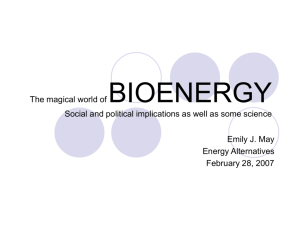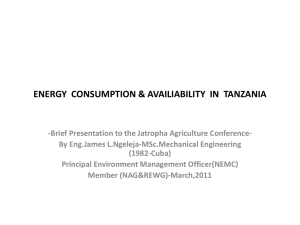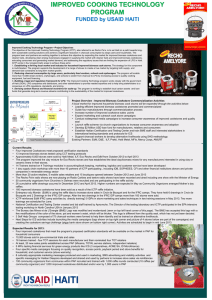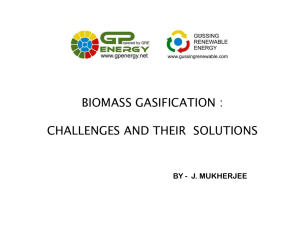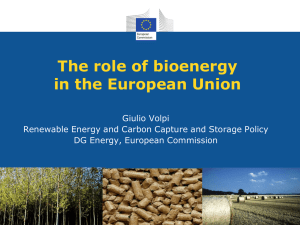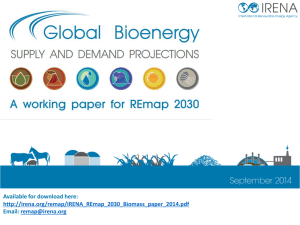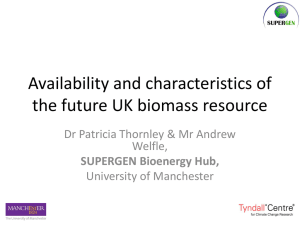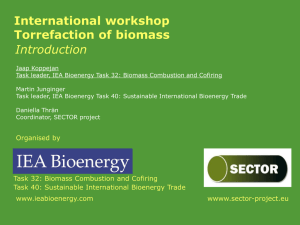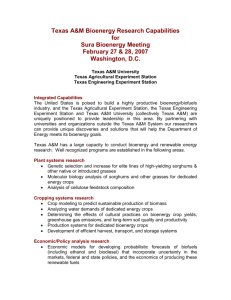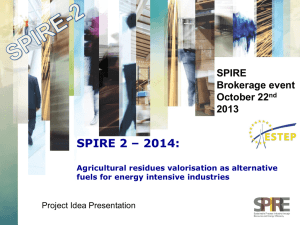Summing Up and Policy Recommendations
advertisement
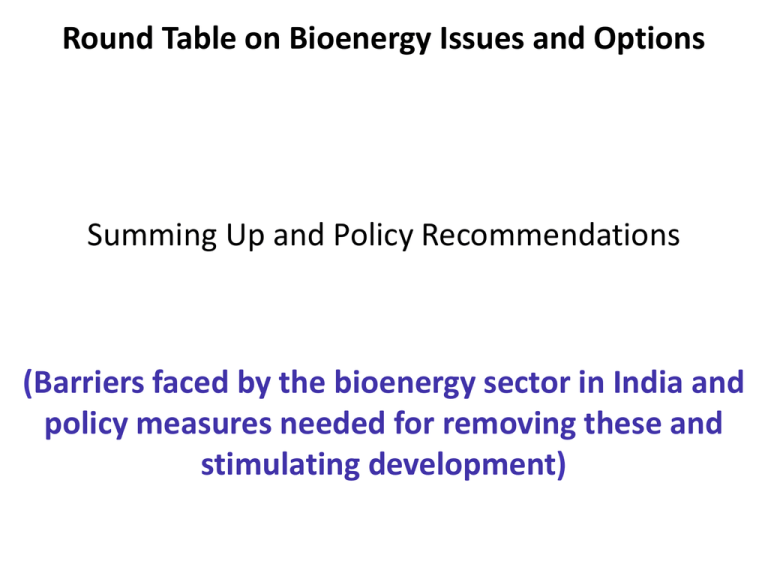
Round Table on Bioenergy Issues and Options Summing Up and Policy Recommendations (Barriers faced by the bioenergy sector in India and policy measures needed for removing these and stimulating development) 1) Biomass supply Barrier: Inadequate and uncertain biomass supply and high cost. Policy measures: Augment supply i) Energy plantation, including plantation in degraded land; ii) Create favourable condition for private sector involvement in plantation; iii) Promote use of residues by a. involving entrepreneurs /local communities to collect, b. upgrading (bales/briquettes/pellets), c. creating depots and d. training; iv) Consider ban on field burning of crop residues; v) Promote biomass use efficiency in household stoves and establishments to save biomass fuels, which can be used for other energy applications. 1) Biomass supply Contd. vi) Promote use of biomass briquettes/pellets by waiving off VAT on the product. vii) Give monetary incentives to consumers per MJ (or kg) of briquettes or pellets for reducing effective cost and to promote use of these fuels. viii) Anyone willing to set up a biomass briquette plant should be entitled to hassle-free loan from Public Sector banks. (Input from Mr. Nitesh Rungta of Sridhar Group, Kolkata) 1) Biomass supply Contd. ix) Promote MSW use for energy by providing attractive tariff for Power from MSW to promote private sector involvement. x) Implement model demonstration projects on different technologies for utilising MSW (biomethanation, gasification, pyrolysis, RDF etc.) xi) Consider ban on open burning/dumping of MSW. xii) Consider capacity building of officials of corporations and municipalities and expose them to MSW experience in developed countries, e.g. Sweden, Canada etc. 2. Biopower Barriers: i) Fuel supply risks, ii) Unattractive Tariff, iii) Faltering RPO scheme, iv) In case of gasifiers, specific challenges exist regarding disposal of ash, tar and recycled water. Policy measures: i) Permission for new biopower plants should require long-term fuel supply agreement. ii) Incentives and tariffs (FIT) should be enough to make private sector involvement attractive. iii) Support for R&D for minimizing tar in producer gas and associated problems. iv) Enforce Renewable Purchase Obligation (RPO) (RPO is vital for promoting power from RE. Current trend suggests that most states are likely to miss the target, 15% by 2020, by a wide margin.) 3. Biofuels Barriers: i) Lack of raw material (ethanol); ii) Lack of high-yielding Jatropha seed supply (Biodiesel) Policy Measures: Promote R&D on or Tech Transfer of advanced biofuels from cellulosic materials/algae Promote R&D on or Tech Transfer of biodiesel from high-yielding Jatropha and other crops. 4. Improved/advanced stoves Barriers: Lack of awareness about health impacts and access to improved/advanced stove designs High cost of improved/advanced stoves and processed fuels for advanced stoves Policy measures: Launch national awareness campaign on health impacts in line with campaign against smoking and to create demand for improved stoves (similar to campaign to promote house toilets in rural areas.) Introduce incentives for reducing effective costs of stoves and purchased fuels by consumers. 5. General Barriers i) Lack of easy access to technologies developed abroad ii) Lack of enforcement of targets for biopower, biofuel, RPO etc. iii) Lack of coordination among ministries, departments and agencies. iv) Low electrical load in rural areas. v) High interest rate for bank loans in bioenergy sector. vi) Lack of effective CO2 control strategy. Policy measures •Facilitate transfer of technologies not available in the country. •Introduce enforcement mechanism/fix responsibility for meeting national bioenergy targets. •Consider single window for promoting private sector involvement. •Create electrical load as part of rural development programmes. •limit interest rate to 10% or at Priority Sector levels •Impose carbon tax on all fossil fuels (not just coal, R 50/t)






